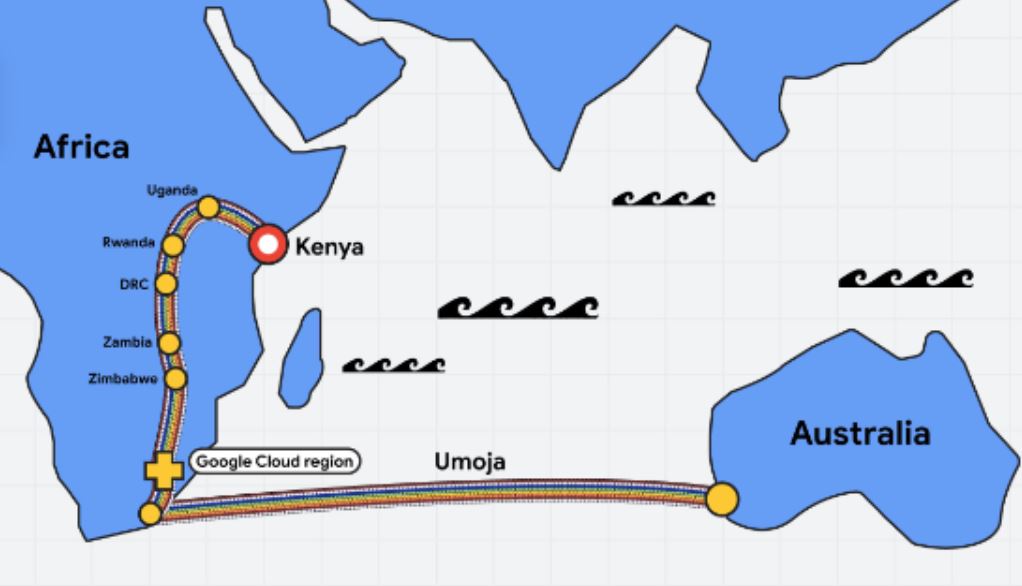Google is forging a new path beneath the waves. Umoja, which translates to “unity” in Swahili, is the tech giant’s ambitious project to connect Africa directly to Australia with a high-speed fiber optic cable. This groundbreaking infrastructure project promises to revolutionize digital connectivity across the continent, fostering economic growth and opening new avenues for communication and collaboration.
Previously, Africa’s internet traffic to Australia routed through Europe or Asia, creating bottlenecks and latency issues. Umoja cuts out the middleman, offering a direct connection that promises significantly faster data transfer speeds. This boost in bandwidth will be a boon for businesses, enabling seamless communication and cloud-based operations across the Indian Ocean.
“The new intercontinental fiber optic route will significantly enhance our global and regional digital infrastructure. This initiative is crucial in ensuring the redundancy and resilience of our region’s connectivity to the rest of the world, especially in light of recent disruptions caused by cuts to sub-sea cables,” said President William Ruto who is current on a State visit in the United States.
The cable itself is just one piece of the puzzle. Umoja’s terrestrial path, built in collaboration with Liquid Technologies, snakes through Kenya, Uganda, Rwanda, Democratic Republic of Congo, Zambia, Zimbabwe, and South Africa. This land-based infrastructure includes access points that other African nations can tap into, potentially extending the reach of the high-speed connection.
“Access to the latest technology, supported by reliable and resilient digital infrastructure, is critical to growing economic opportunity. This is a meaningful moment for Kenya’s digital transformation journey and the benefits of today’s announcement will cascade across the region,” said Meg Whitman, U.S Ambassador to Kenya.
Umoja’s impact goes beyond just speed. Reliable internet access is a cornerstone of economic development. By enhancing connectivity, Umoja has the potential to unlock a wave of innovation and entrepreneurship across Africa. Businesses will have access to new markets and resources, while e-commerce and digital services can flourish.
There’s also a social aspect to consider. Improved connectivity fosters closer communication between individuals and communities. Umoja can bridge the digital divide, allowing for better access to education, healthcare, and government services in remote areas.
“Africa’s major cities including Nairobi, Kampala, Kigali, Lubumbashi, Lusaka, and Harare will no longer be hard-to-reach endpoints remote from the coastal landing sites that connect Africa to the world” stated Strive Masiyiwa, Chairman and founder of Liquid.
Google has lined up to $1 billion worth of investment to help boost Africa’s digital transformation targeting infrastructure development, skills expansion and enabling a vibrant startup ecosystem.
Additionally, Ministry of Information Communications and the Digital Economy will sign a Statement of Collaboration with Google to accelerate joint efforts in cybersecurity, growing data-driven innovation, digital upskilling, and responsibly and safely deploying AI for societal benefits.
The project isn’t without its challenges. Building and maintaining undersea infrastructure is a complex undertaking. Additionally, ensuring equitable access to the benefits of Umoja across all African nations will require continued collaboration between governments, telcos, and tech giants like Google.
Umoja represents a significant step forward in Africa’s digital transformation. By bringing continents closer together, this undersea cable has the potential to unlock a brighter future for millions.




